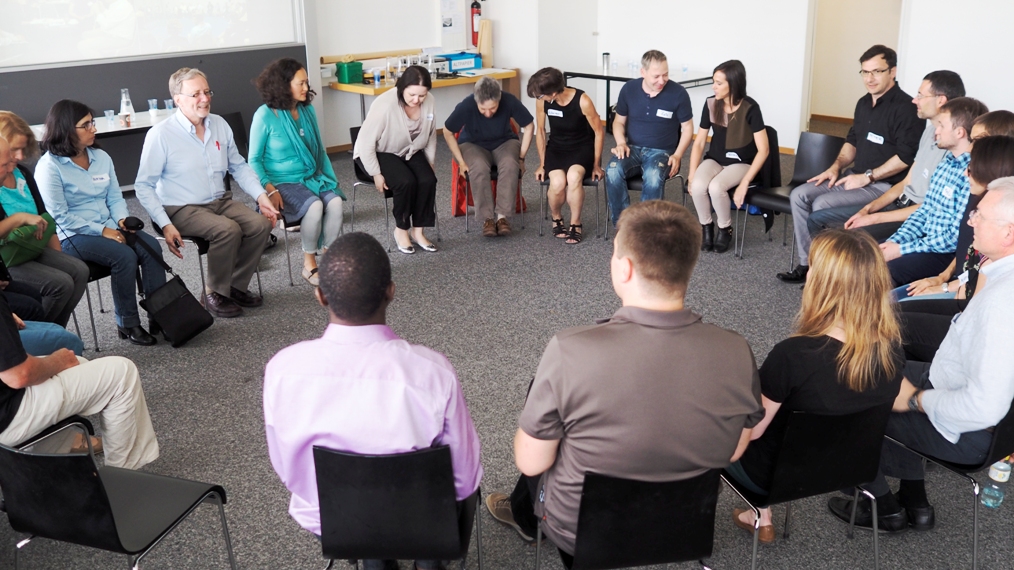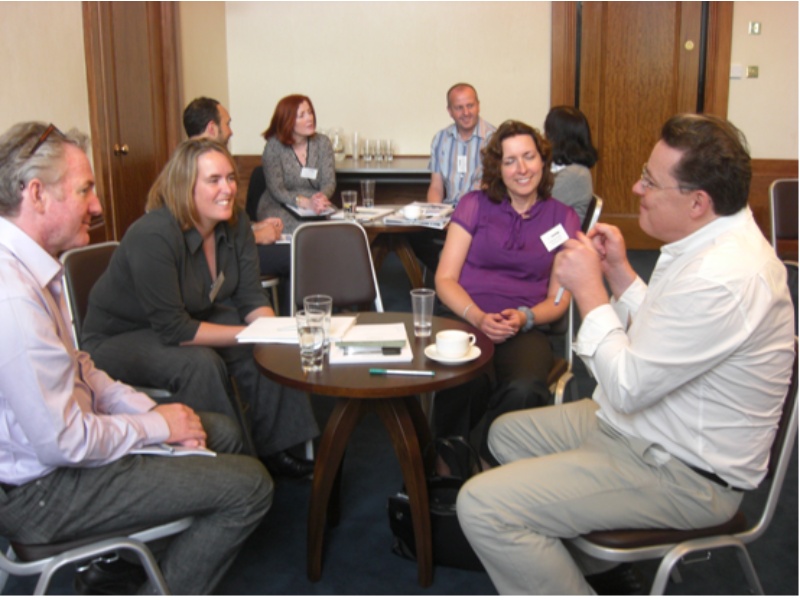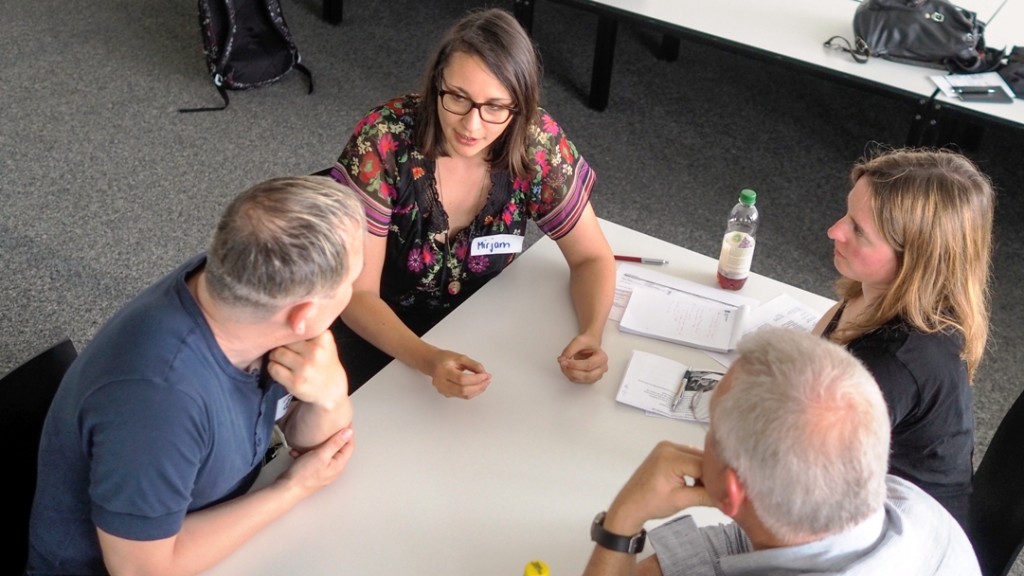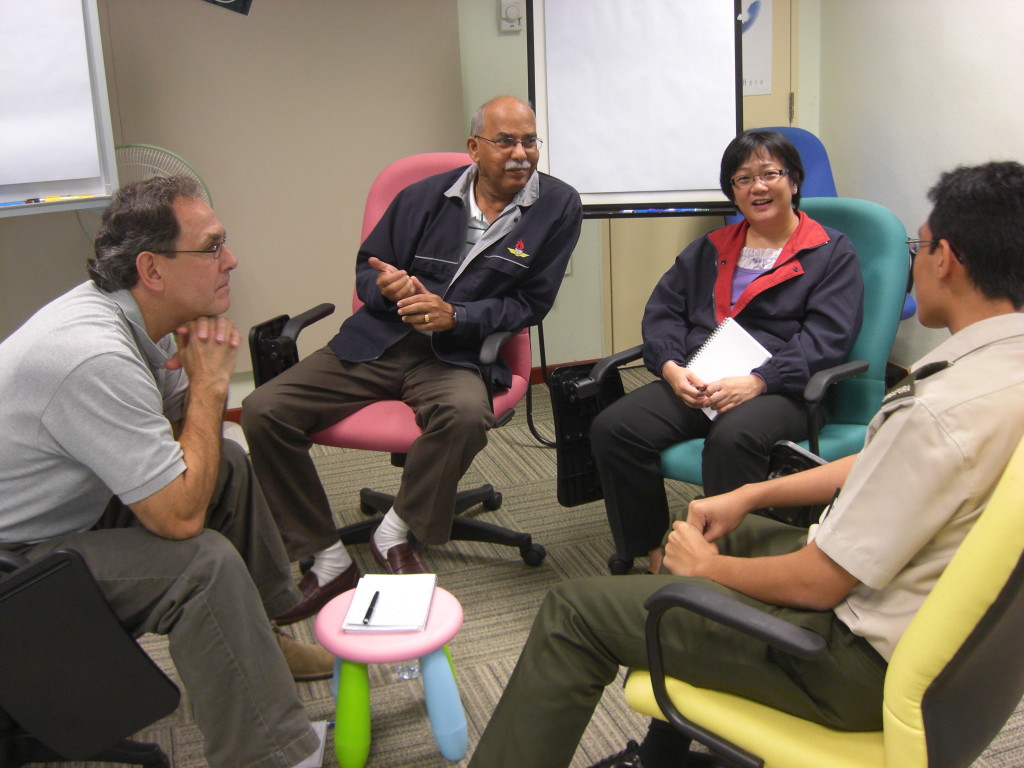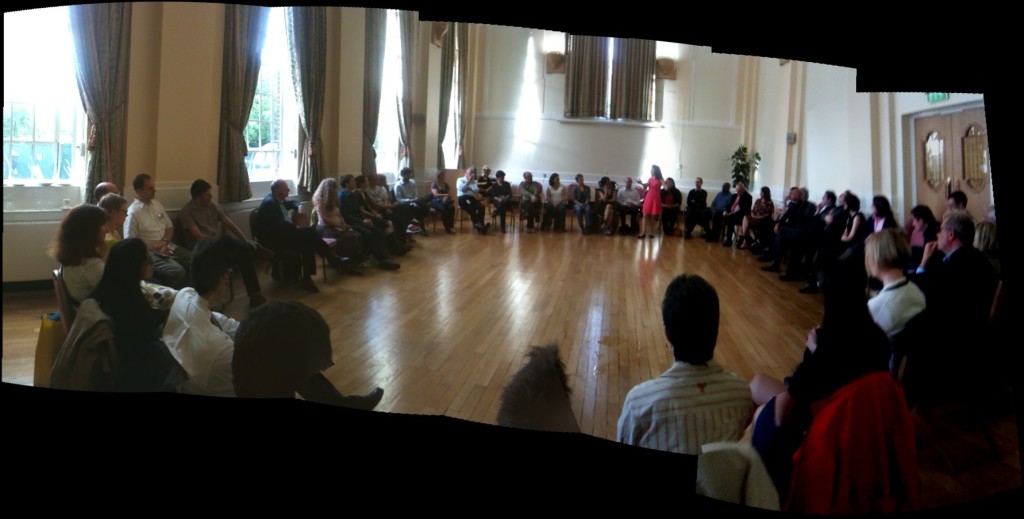I run public Knowledge Cafés in London and in the UK several times a year, and I occasionally run them in other UK cities and countries around the world during my travels.
These Cafés are usually sponsored by an organization, and this page explains the process for new or potential Knowledge Café sponsors.
A public Knowledge Café sponsor is an organization that provides a venue for one of my public Knowledge Cafés.
Concept: The basic idea behind a public Knowledge Café is to create an environment where people can come together to have interesting conversations on a topic of mutual interest – typically on a theme to do with Knowledge Management, Education, Creativity, Innovation, or Social Learning.
Public Knowledge Cafés are free and open to everyone, and thus, a free room is required in which to hold it.
The value of running a Knowledge Café to both the sponsor and me is in demonstrating our commitment to sharing Knowledge and to social learning. It is also about growing our respective networks.
This means, ideally, that I am looking for a sponsor who has a network of their own who can invite members of their network to attend and also help promote the Knowledge Café more widely.
Procedure: You will find an overview of the roles, procedures, and the timing of a typical public Knowledge Café here.
Location: It is usually best to hold the Knowledge Café somewhere central to the city or a venue with good transport connections.
The Room: The sponsor needs to be able to provide a suitable room in which to hold the event. This could be a room in one of their offices, or occasionally it could be a hired room in a hotel or conference centre.
The basic requirement for the room is that it can seat 30 – 40 people. The room ideally should be more square rather than long and thin. Public Knowledge Cafés are usually not much smaller than 20 and no larger than 35. 25 to 30 is an ideal number. More than this, the Café needs to be run differently, and some of the benefits are lost. The number of participants can be capped if necessary.
It is possible to run Knowledge Cafés almost anywhere – even a lecture theatre, but this is far from ideal.
Tables: Ideally, the room should provide round (ideal) or rectangular tables that seat 3 – 4 people. On the evening of the Café – people will be asked to sit in groups of three or four (at the most 5).
Audio Support: If more than 30 people will be participating in the Knowledge Café, then some form of audio support may be required. Typically, this means a lapel or handheld microphone for the speaker and facilitator and at least two roving microphones for the room. The need for microphones severely impacts the free flow of conversation in a Knowledge Café, and they should be avoided if possible.
Other Facilities: Normally, no other facilities, such as flip charts or a PC projector, are required, but if they are, I will ask if it is possible to provide them.
Refreshments: If you can provide refreshments, that would be good. Sponsors typically provide tea, coffee, and water but often also provide nibbles or even wine and sandwiches, but this is not essential. The basic requirement is access to a ‘pay for’ drinks vending machine, but even that is not essential.
Timing: Public Knowledge Cafés take about 2.5 hrs to run, and when run in the evening usually last from 6:00 pm to about 9:00 pm – people arrive from 6:00 pm onwards for a 6:30 pm start, finishing by about 8:45 pm and usually the room is cleared by 9:00 pm at the latest. So it is good if the room is available from, say, 5:30 pm to 9:00 pm.
Invite: I will set up a web page like this one on my website and promote the event to my community by email. You can also promote it to your network through your channels. I handle all of the booking logistics and can cap numbers if needed.
Numbers and Security: I will keep you informed of approximate numbers as the day approaches. Typically, only 2/3 of the people who register turn up in the evening. So 60 registrations typically only result in 40 people turning up on the evening.
I will also provide you with a list of attendees if needed for security purposes. This list is often not complete or accurate as people often forget to book or bring along a friend at the last minute. If this is a problem, then it needs to be discussed at an early stage so it can be made clear to people that they must register for security reasons.
Name badges are not generally issued, nor do I expect you to unless it is essential for security purposes.
Costs: There are usually no costs involved with my public Knowledge Cafés. I do not charge for attendance other than occasionally a small charge for refreshments, though this is rare. This is also why I need to find a sponsor organization that is happy to provide a free room and refreshments in the spirit of knowledge sharing and personal learning 🙂
Guests: You are welcome to invite people from your organization and network. To help keep track of numbers, it is a good idea if they book their place through my website.
Video: On occasion, the session may be filmed. I will inform you of this and ask your permission if this is the case. Typically, this just requires access to the room by the cameraman about thirty minutes before the evening starts.
Theme: The theme of the Knowledge Café is determined between us. I often already have an idea in mind, but if you would like to suggest a topic relevant to your organization or even propose a Knowledge Café speaker from your organization, then please discuss that with me. Clearly, it makes sense for the Knowledge Café to be a two-way collaborative event.
On the evening: If you wish to say a few words at the start of the Café to welcome people and tell them a little about your organization, then you are welcome to do that. If you wish to make leaflets or brochures available, that is fine too.
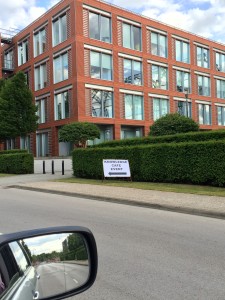
Directions: If you have a map URL and any specific directions to the venue or instructions on arriving, then that will be of great help to the cafe director in publicizing the event. On the evening, if you could let your reception know that guests will be arriving and the location of the Café that would help. In large buildings such as Universities – the occasional sign to the room may also be useful. You will be surprised how often reception does not know of an event, or participants get lost!
